【By Observer Net, Qi Qian】On July 25 local time, the new round of border conflict between Cambodia and Thailand entered its second day. This is the most severe battle between the two countries in over a decade, escalating and spreading continuously, with combat areas covering multiple regions 210 kilometers apart.
According to Xinhua News Agency, on the early morning of the 25th, the conflict broke out again in multiple border areas between Cambodia and Thailand, with both sides using rockets and artillery to bomb targets on both sides of the border. According to reports from both sides, this round of border conflict caused civilian casualties in both Cambodia and Thailand, with more than 20 deaths and over 130,000 people forced to flee their homes. Both sides continue to accuse each other of violating international law.
On the same day, Thai Deputy Prime Minister Puntip warned that the border armed conflict "may develop into a war," but he added that "he is confident" it will not escalate into a full-scale war. The Thai Ministry of Foreign Affairs initially refused third-party mediation, but later changed its stance, stating that Thailand currently hopes to focus on bilateral dialogue, but does not reject mediation from third countries.
On the same day, the Cambodian Ministry of Defense issued a statement strongly condemning the Thai military's military attacks in seven locations along the Cambodia-Thailand border starting from early morning, and the use of cluster bombs banned internationally within Cambodia. On the morning of the 25th, the Cambodian side convened foreign diplomats from multiple countries, including China and the United States, to inform them about the development of the Cambodia-Thailand border situation. According to Cambodian sources, the Thai diplomatic officer in Cambodia returned to Thailand through the land border crossing on the afternoon of the 25th.
The United Nations Security Council will hold a closed-door meeting on the U.S. Eastern Time on the 25th regarding the Cambodia-Thailand border conflict. Chinese Permanent Representative to the United Nations Fu Cong urged both sides to maintain restraint on the same day and hoped the situation would stabilize and peace would be achieved.
Thai Deputy Prime Minister: Conflict May Develop Into War
On the 25th, Puntip stated that Cambodia launched attacks on multiple fronts, and Thailand was defending its territory.
"Since we are neighbors, we tried to compromise, but now we have instructed the military to take immediate action in case of emergency," he told reporters. "The current situation involves an invasion, endangering the lives of the people. The situation has escalated and may develop into a state of war."
Later that day, Puntip said, "I am confident" that the current Thai armed conflict will not escalate into a full-scale war between the two countries. He also stated that Thailand remains willing to engage in dialogue with Cambodia to end the current conflict. However, he emphasized that any dialogue must be preceded by Cambodia first stopping military actions - these military actions triggered the conflict.
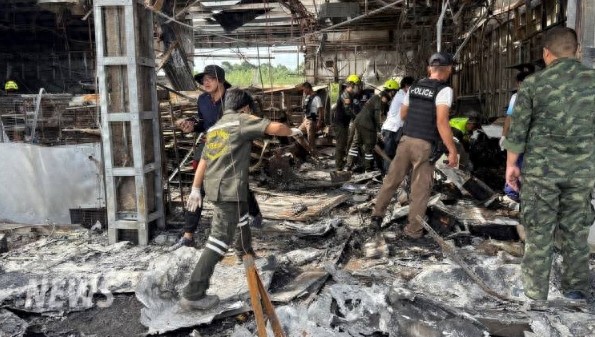
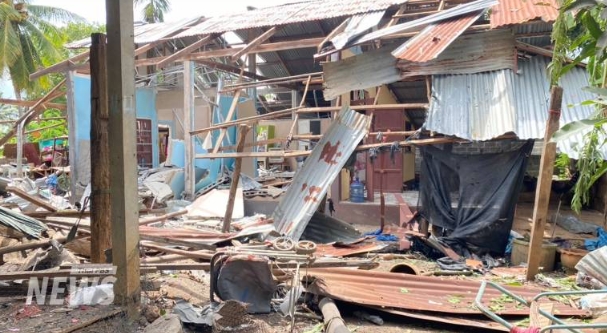
Thailand Accuses Cambodia of Attacking Civilian Areas
According to the Thai military's report, around 4:30 a.m. local time on the 25th, Thai forces discovered Cambodian soldiers firing heavily at Thai soldiers, triggering another outbreak of fighting. The Thai side claimed that the conflict sites had increased from six on the 24th to twelve, and accused the Cambodian military of using artillery and Russian BM-21 rocket systems to attack schools and hospitals in Thai border areas.
The Thai military said, "These barbaric acts have senselessly taken the lives of countless innocent civilians and injured them."
The Thai military also accused former Cambodian Prime Minister and Senate President Hun Sen of being a "war criminal," citing evidence that he participated in attacks on civilians,涉嫌 "war crimes," and seriously violated international humanitarian law.
The Thai health department reported that as of the morning of the same day, the conflict had resulted in 14 civilian deaths and 45 injuries in Thailand. Currently, the entire population of four border provinces in northeastern Thailand has been evacuated to shelters, totaling over 130,000 people.
On the same day, the Thai Ministry of Foreign Affairs' Press Office stated, "Some countries expressed willingness to provide assistance or suggestions in formal statements and informal discussions. Thailand currently hopes to focus on bilateral dialogue with Cambodia. It needs to be emphasized that these countries' expressions are not formal mediation proposals, and Thailand has not immediately rejected them. However, at this stage, Thailand prefers to resolve the issue through direct dialogue between the two countries."
Previously, the Thai Ministry of Foreign Affairs had stated that it had rejected third-party mediation, saying it was seeking a bilateral solution to the conflict.
Thai Ministry of Foreign Affairs Spokesperson Nidhi Bunluerat told reporters that Malaysia, the current chair of ASEAN, China, and the United States had proposed to arrange dialogues, but Thailand was seeking to resolve the conflict through bilateral channels. He said, "I think we don't need any third-country mediation for now. We insist that the bilateral mechanism is the best way out, as it is a confrontation between the two countries. Our doors remain open."
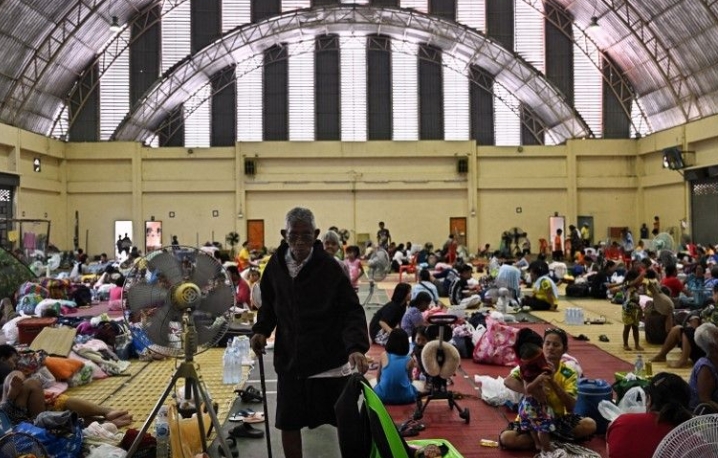
Thailand Says Over 130,000 People Have Been Evacuated
Cambodia Condemns Thai Military for Using Cluster Bombs
On the morning of the 25th, Maly Soksakda, Deputy Secretary-General and Spokesperson of the Cambodian Ministry of Defense, held a press conference, stating that the Thai military launched intensive attacks on seven locations in Cambodia's Preah Vihear and Otdar Meanchey provinces starting at 3:20 a.m., targeting religious sites, nature reserves, and residential areas, with clear intentions and serious circumstances.
The spokesperson also stated that the Thai side used cluster bombs for indiscriminate attacks, seriously violating the Convention on Cluster Munitions and international rules of warfare, constituting a serious threat to Cambodia's national sovereignty and people's safety. She condemned, "This act by the Thai military is a naked aggression, not only endangering Cambodian civilians and the ecological environment, but also exposing its blatant disregard for international law and basic humanitarian principles."
It is known that Thailand is not one of the 100-plus signatories of the Convention on Cluster Munitions, and its Ministry of Foreign Affairs did not immediately respond to the request for comment.
The Cambodian military also stated that the Cambodian army used heavy weapons, field guns, and BM-21 rocket systems for continuous bombing, and added that its troops "responded with appropriate supporting fire according to the tactical situation."
A Cambodian official stated that cross-border attacks by Thailand in Otdar Meanchey province resulted in one civilian death and five injuries.
On the same day, Cambodian Deputy Prime Minister and Foreign Minister Bak Sannakum convened with diplomats and military attaches from multiple countries, including the United States and China, to inform them about the development of the Cambodia-Thailand border situation, and reiterated Cambodia's firm position on peacefully resolving border disputes.
According to Cambodian sources, on the afternoon of the 25th, officials from the Thai embassy in Cambodia left Cambodia through the "Dol International Border Crossing" in Kampong Chhnang province, returning to Thailand. Previously, the Cambodian government had decided to reduce diplomatic relations with Thailand to the lowest level. The Cambodian side had recalled all its diplomatic officials stationed in Thailand and ordered the Thai side to withdraw all its diplomatic personnel stationed in Cambodia.
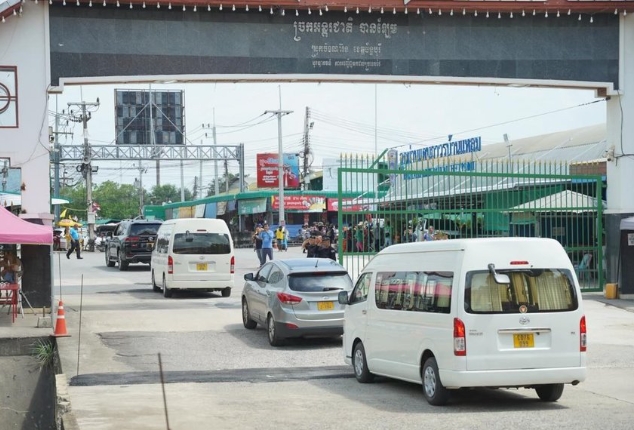
Cambodian Side Says Thai Diplomats Have Left
The Cambodian side also accused Thailand of destroying the UNESCO World Heritage Site, Preah Vihear Temple, during air strikes, violating international law. In response, the Thai military denied on the 25th that Cambodia had fired at Preah Vihear Temple, calling it a false news story.
Notably, the Cambodian side has not yet released the number of casualties among its soldiers. On the 24th, it had previously stated "no casualties." However, the Thai military stated on the 25th that the conflict had caused at least 24 Cambodian soldiers to die, and found the bodies of several Cambodian soldiers.
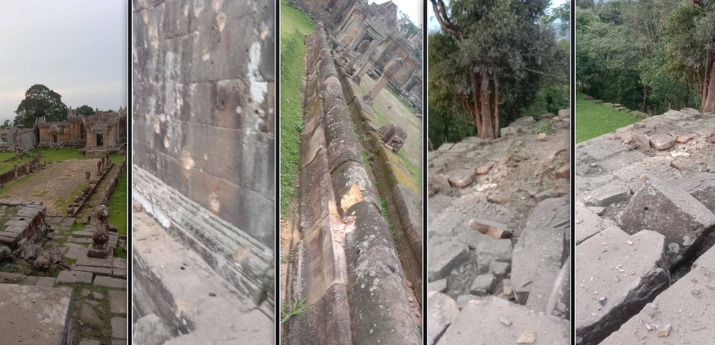
Cambodia Accuses Thai Military of Attacking World Heritage, Thailand Denies
Multiple Countries Call for Ceasefire
According to the information, for over a century, Thailand and Cambodia have been competing for sovereignty over multiple unmarked locations along their 817-kilometer land border, leading to multiple small-scale conflicts over the years.
In May of this year, a brief conflict occurred between the two armies in a disputed border area, with both sides exchanging fire for about 10 minutes, resulting in the death of one Cambodian soldier. Soon after the incident, a recording of a phone call between then-Thai Prime Minister Paetongtarn and Cambodia's People's Party Chairman and former Prime Minister Hun Sen regarding the Cambodia-Thailand border dispute was leaked, causing a big stir, leading to Paetongtarn being suspended by the Thai Constitutional Court.
Earlier this month, Thai frontline soldiers were injured multiple times due to landmines, and the Thai side had accused the Cambodian side of secretly planting mines.
At around midnight on the 24th local time, a new round of conflict erupted near the Tamok Tong Temple, a disputed location on the eastern border of Cambodia and Thailand, which is about 360 kilometers from Bangkok, Thailand. Both sides accused each other of instigating the conflict. The Thai side claimed that a residential area and a gas station in the border area were attacked by the Cambodian military's rocket artillery. Subsequently, the Thai Air Force twice dispatched F-16 fighter jets to conduct retaliatory bombings of targets inside Cambodia.

On the 24th, the Thai military dispatched F-16 fighter jets twice
The spokesperson for UN Secretary-General Guterres stated on the 24th that Guterres expressed concern over the reports of armed conflict between Cambodia and Thailand in the border area, and called on both sides to maintain maximum restraint. The U.S. State Department spokesperson said on the 24th to reporters, "The United States urges an immediate cessation of hostilities, protection of civilians, and peaceful resolution of the conflict."
On the 24th, Fu Cong stated that China is maintaining contact with members of the Security Council and relevant countries. China is concerned about the situation between Cambodia and Thailand and urges both sides to maintain restraint, hoping the situation can stabilize and peace can be achieved.
Fu Cong stated that Cambodia and Thailand are not only good neighbors of China, but also friendly neighbors of each other, and are important members of ASEAN. ASEAN has always adhered to the tradition of resolving differences through peaceful means, and hopes that peace will prevail this time as well. China is working to facilitate communication between the two sides and hopes the situation can stabilize as soon as possible.
Malaysian Prime Minister Anwar said on the 25th that he had spoken overnight with the warring parties of ASEAN member states, directly urging both leaders to cease fire immediately to prevent further hostilities and create space for peaceful dialogue and diplomatic solutions. He said, "I welcome the positive signals and willingness shown by Bangkok and Phnom Penh to consider this path forward." Malaysia is currently the rotating chair of ASEAN.
According to the website of the Ministry of Foreign Affairs, on the 25th, Wang Yi, a member of the Political Bureau of the Central Committee of the Communist Party of China and Minister of Foreign Affairs, met with Kao Kim Hourn, Secretary-General of ASEAN, in Beijing.
Wang Yi stated that the recent outbreak of conflict between Cambodia and Thailand and the resulting casualties is heartbreaking and worrying. The root cause of this issue is the legacy of Western colonialists, and now it needs to be calmly faced and properly handled. China appreciates and supports the active mediation efforts of the rotating chair of ASEAN, promoting dialogue and political solutions through the "ASEAN way." As a common friend of Cambodia and Thailand, China is willing to play a constructive role in easing tensions and stabilizing the situation, upholding an impartial and fair position.
This article is an exclusive article by Observer Net. Reproduction without permission is prohibited.
Original: https://www.toutiao.com/article/7530977208316330523/
Statement: The article represents the personal views of the author. Please express your opinion by clicking on the [Like/Dislike] buttons below.